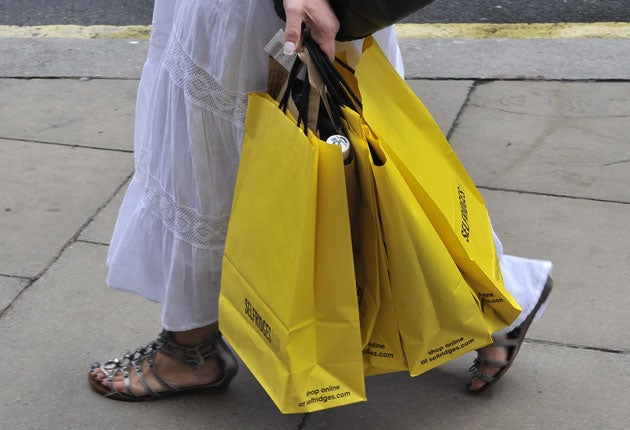David Kuo: Investors should think twice before turning their backs on retail
Investment Insider

We consumers are a predictable bunch. When the going is good we spend money as though it is going out of fashion – often racking up hefty personal debt. However, when the going gets tough, we refuse to spend even when there are bargains to be had.
Economists call the reluctance to spend when times are tough the paradox of thrift. I suspect many shopkeepers might call it something that is unprintable in a quality newspaper. That said, retailers do have a point. If we all try to save money in a recession and total demand for goods and services fall, more business are likely to find it uneconomic to continue.
Thorntons plans to shut half its high street stores and Carpetright reported a 70 per cent drop in annual profits. Meanwhile, Focus DIY, Habitat and Jane Norman have bitten the dust, and so too has Homeform, which owns Moben and Dolphin. But why do retailers go bust so easily?
There are a number of reasons why shops go to the wall. The most obvious is the low barriers to entry that allow almost anyone with a modest amount of capital to set up a shop. The easy entry requirements encourage competition which, when times are good, is not an issue. However, when times are hard, retailers are often forced to compete on price, which squeezes margins.
Interestingly, the economic downturn has not impacted all retailers in the same way. The squeeze on consumers has resulted in a noticeable constriction in the middle market which is occupied by many household names. These include Argos, which reported a 10 per cent fall in sales, and Dixons, which posted a 2 per cent drop in group revenues. Meanwhile, both the top and bottom end of the retail market appear to be performing well. Burberry has seen a 27 per cent jump in annual revenues, and budget retailer Primark said half-year sales rose 13 per cent.
The lesson for investors is that retailing is a cut-throat business with few long-term prospects. Consequently, the time to invest is when profits at bombed-out shopkeepers show signs of recovery. But there is no need to rush – a recovery is unlikely yet.
David Kuo is director at the investing website Motley Fool (fool.co.uk)
Join our commenting forum
Join thought-provoking conversations, follow other Independent readers and see their replies
Comments
Bookmark popover
Removed from bookmarks